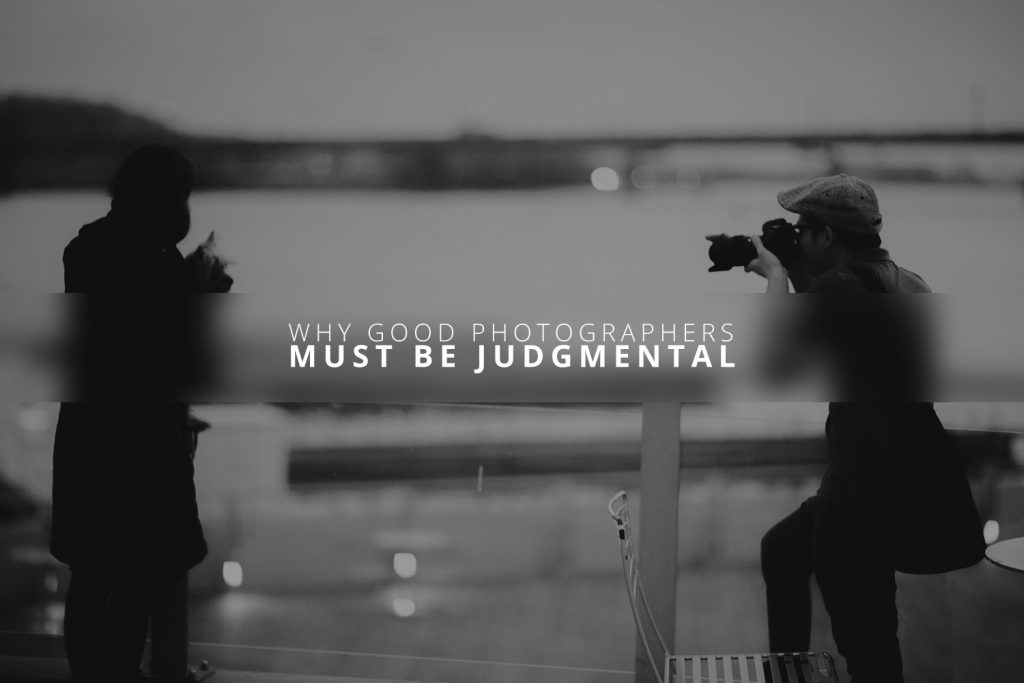In our modern world of imprecise language and highly personalized sensitivities, “judgmental” is usually conflated with “observing”. To notice someone is not looking their best, to notice someone is frequently late, to notice someone’s children are spirited and rambunctious, is often felt as “judgement”. In actuality, judgement is an if-then, conclusive situation. To notice someone is overweight is not judgmental, strictly speaking. It’s observation. To notice someone is overweight and to link that speculatively to actions—-“they’re overweight because they keep eating cheeseburgers”—is drawing judgmental conclusions.
It makes sense that people would abbreviate the concept of judgement into just that first act of observation, because in so many cases, judgement reliably shows up in short order. Many have resigned themselves to simply not noticing those things which people might not want noticed. Many have decided for themselves that no one, or only those closest to them, are really allowed to make observations. In every other case, many are sure to respond with hurt feelings or anger.
There are 7 billion people on the planet. That’s up more than 100% since the 1960’s. Our world is highly connected, and en masse often lacks empathy. As a species, we’re more self aware than we once were too. We know when we’re fat. We know when we struggle to keep commitments. We know when our children are a nightmare to be around. We are automatically comparing ourselves to other populations and people groups around the world all the time, not just our next door neighbor during the monthly social. So, the desire to not be observed, or have those observations repeated back to us, is probably an adaptive behavior. We’re comparing ourselves to the “best” of humanity, and many people have difficulty being satisfied and secure in themselves when they realize they’re probably never going to meet that “ideal”. We’d rather not be seen, than seen as “inferior”.
Now, let me pause for a moment and just say—stop that. Anyone who’s plugged-in is susceptible to this degrading comparison compulsion. However you’ve impressed yourself, someone out there is almost definitely busy being more impressive. Someone is smarter. Someone is prettier. Someone is stronger. Someone overcame greater obstacles. Someone is better educated. Someone is more creative, more heroic, more selfless. Always more, and always better than we are. So, now that you’re reflecting on that—why does that even matter? Never mind that those people we compare ourselves to may be pitiful in ways that we are strong. Never mind what it has cost them to be impressive. Never mind if they’re even happy. Thinking about it is not making you happy, and it’s not making your life better either. So, stop it.
Okay, back on track here.
So there is a good reason we’ve become sensitive to mere observation. Our own psych in this comparison culture has worn our nerves raw. Whether you should work to harden this sensitivity, and whether this sensitivity even has any effect on you at all, is between you and yourself. But as a photographer, I run up against this sensitivity with some regularity because virtually everything a photographer must do with a subject requires they adopt a judgmental stance. I mean that in the true if-then sense; if my subject has a distractingly big nose, then I must need to shoot with a longer lens and avoid angles that exaggerate their nose; if my subjects are hyper children who don’t follow instructions well, then it’s not worth trying for formal photos; if my subject is sweating a lot, then I’ll need to hand them a clean towel regularly.
A photographer must size up their subject. A photographer must think critically about the shapes, and lines, tones, and practicalities of every shot. To do that, they have to be able to look, to observe, and to make judgements. They have to be able to see what will ruin the photo when they take it in a certain way. While it’s a virtue for the average person to be non-judgmental, a photographer who is unable to be judgmental will only ever happen upon a great photo, and will be unable to create one. This, among other things, is why taking a photo has long been considered an act of aggression. It steals some autonomy from someone who is unaware they are being photographed, and it demands some kind of submission by one who does. The photographer looks, makes judgements, conceives the shot and then creates it——hopefully, with their subject’s collaboration.
Being a good photographer is only about 20% knowing how to use a camera. A good photographer, and most real professionals, understand the stickiness of the other 80%. You may have heard how important it is to feel “comfortable” with a photographer, or as a photographer, how important it is to make your subject feel “comfortable”. Well, this is what that means. Sure, there are the pleasantries—“can I get you some water?”—but the real comfort comes from being seen and felt and accepted, and not just because of the words we use (or don’t use). When I’m working with a client and I need to address something, perhaps it’s pimples or an awkward smile, I have to make them feel accepted first. They have to know that my judgements are not qualitative, but rather quantitative; I can tell when you’re overweight, and hopefully you can tell that doesn’t have any bearing on what I think of you or how you choose to live your life.
A good photographer must be judgmental, but that should never mean negativity, pessimism, degradation or ridicule—even quietly in our own heads. To subvert the aggression of photography, and the necessary judgements that come with creating a beautiful photo, a photographer must love their subjects, and must respect their dignity and autonomy. Being non-judgmental is a shortcut to avoid navigating the nuanced challenges of having opinions about other people. Photographers don’t have that luxury, so they have to do it the hard way—with patience, humility and respect, and in greater measure than almost anyone else.

